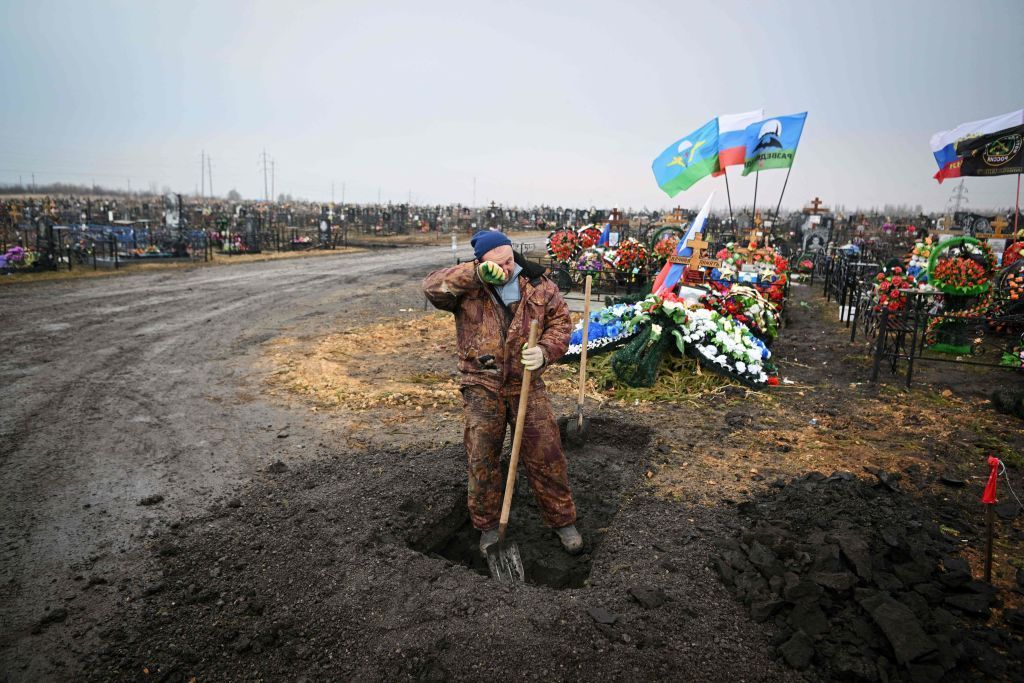According to Ukraine’s General Staff, over half a million Russian soldiers were either killed or wounded in Ukraine during the 27-month-long full-scale war. This number is in line with estimates from the U.K. and France, with French Foreign Minister Stephane Sejourne stating that Russia’s military losses are estimated at 500,000, including 150,000 deaths. These figures include dead, wounded, missing, and captured soldiers. Western officials have also given similar estimates about Russian battlefield losses, indicating a significant toll on Russia’s military forces during the conflict.
Ukraine has been publishing daily estimates of the number of killed and wounded Russian soldiers since the early days of the invasion, and these figures have gained credibility over time. Ukraine’s Western allies have also started releasing their own estimates of Russian losses, which align with those provided by Kyiv. An ongoing open-source investigation by Mediazona and BBC Russia has confirmed the deaths of over 52,000 Russian soldiers, with the actual numbers likely being higher due to limited access to information from Russia.
The high number of Russian military casualties poses significant challenges for Russia, both economically and demographically. As the war in Ukraine continues, Russia’s new defense minister Andrey Belousov has emphasized the importance of achieving victory with minimal human losses. However, the toll on Russian soldiers and the impact on their families have raised concerns about the long-term consequences for Russia’s society. The surge in PTSD, alcohol and drug addiction, and other social issues among returning soldiers point to a looming demographic time bomb that could affect Russia for years to come.
Despite the heavy losses suffered by Russia, there appears to be a steady stream of recruits signing up for military service. The ongoing conflict in Ukraine has not deterred new enlistments, with more than 100,000 men signing contracts to serve during the first three months of the year. However, the broader implications of the war for Russia’s future remain concerning, with experts pointing to the sacrifices being made by Putin in pursuit of his goals in Ukraine. The economic, social, and demographic impact of the conflict could have far-reaching consequences for Russia in the long term.
The escalation of the conflict in Ukraine and the high number of casualties among Russian forces indicate the severity of the situation. Russian military losses continue to mount, with record levels of soldiers being killed in recent weeks. The hollowing out of Russia’s army and the challenges it faces in sustaining its war effort suggest a fragile situation for the country. The implications of the conflict extend beyond the battlefield, affecting Russian society and raising questions about the country’s long-term stability and viability. The actions and decisions made by Russian leadership in response to these challenges will shape the future of the nation.


